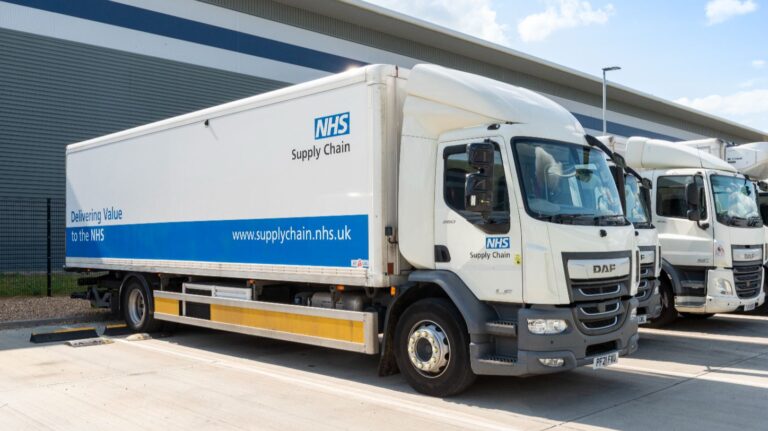This year, NHS Supply Chain partnered with the Hampshire Hospitals NHS Foundation Trust and Wessex Procurement to find ways to streamline deliveries and reduce air pollution around their hospital sites.
Working closely with air quality monitoring specialists EMSOL, the team identified a number of zero-cost ways to cut vehicle emissions from deliveries, in turn helping to improve air quality around the site and supporting the hospital trust’s sustainability goals, aligned with the NHS’ Green Plan.
NHS Supply Chain’s network optimisation team reviewed ordering patterns at the hospital and identified a number of ways that operations could be improved. These improvements included consolidating delivery days and spreading deliveries more evenly across the week, rather than clustering them on peak days.
In the first three months of the project, NHS Supply Chain has recorded significant benefits. The project enabled a reduction of requisition point delivery days from 547 per month to just 97. This represents an 82% reduction, without – it says –detriment to stock availability at the point of use.
Meanwhile, it cut the number of vehicle deliveries per month from 59 to 41 by reducing unnecessary balance loads. It also eliminated mixed and half-full cages, with 338 fewer cage movements recorded.
With optimised scheduling resulting in fewer delivery vehicles attending the hospital, NHS Supply Chain projects an annual CO₂ reduction of 972kg at the site. But improving sustainability and helping meet sustainability targets weren’t the only benefits of the project recorded. For example, reduced NO₂ and particulate emissions has led to improved air quality, which can benefit patients, staff and visitors by helping to lower the health risks associated with poor air quality.
Adam Tewkesbury, head of sustainability at Hampshire Hospitals NHS Foundation Trust, commented: “Fewer deliveries means our patients, visitors and staff are breathing cleaner air around the hospital. This initiative shows the power to deliver real benefits to everyone by working together.”
Other benefits include a lower risk of health and safety incidents such as slips, trips and falls as a result of fewer cage movements. Plus, the hospital has been able to repurpose storage space, reducing stock-holding pressures in materials management.
Furthermore, NHS Supply Chain says that its deliveries – crucially – are now more manageable for hospital staff, easing their workload on peak delivery days.
Heidi Barnard, head of sustainability at NHS Supply Chain said: “Supporting the NHS to reach net zero by 2045 is crucial and one of NHS Supply Chain’s key goals. The success of this project demonstrates how exploring simple changes to ordering and delivery patterns can bring big benefits to air quality, for everyone’s benefit.”







